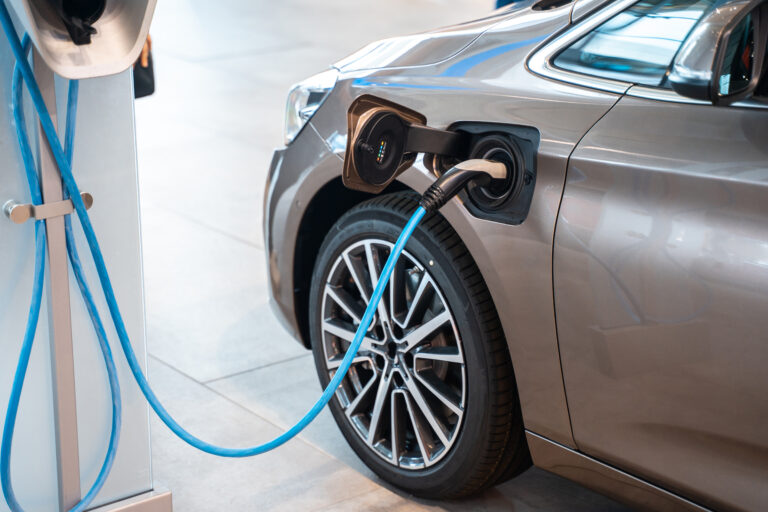
Policy action is needed at the federal, regional, state, and local levels to improve resilience and energy security
WASHINGTON, D.C. – SAFE and the Electrification Coalition released a report on Wednesday that highlights policy opportunities to accelerate the adoption of vehicle-to-grid (V2G) technology. As electric vehicle (EV) adoption accelerates across all vehicle classes, V2G capability can help manage system load and provide power back to the grid during times of need, thereby strengthening the resiliency of the U.S. electric grid. The transition to transportation electrification reduces our dependency on oil and improves energy and national security.
The report, “Advancing Vehicle-to-Grid Technology Adoption,” calls on policy makers to “future-proof” electric vehicles and charging infrastructure to ensure that the U.S. is poised to take advantage of V2G’s many benefits. Given increased frequency of unprecedented extreme weather events, the technology can enhance critical infrastructure resilience and emergency preparedness. V2G enables EVs to serve as “mobile energy storage units” and can provide power during outages. With bidirectional charging technology, EVs can help manage system loads during periods of high electricity demand. A single electric school bus, for example, has enough battery storage capacity to power a hospital operating room for almost two full days.
The technology can help accelerate the adoption of EVs by unlocking these and other new value streams for EV owners and mitigating the total cost of ownership. With the appropriate policies in place, EV owners could receive compensation for the grid services their vehicles provide. These benefits can apply to all vehicle sectors, from light-duty passenger vehicles to medium- and heavy-duty trucks and buses.
Several factors have limited the U.S.’s ability to utilize this exciting technology and its associated value streams. Combined with inadequate incentives to deploy EVs and EV charging infrastructure, V2G adoption has been delayed by insufficient awareness, concerns over battery degradation and warranty issues, an absence of uniform national technical standards, and a lack of coordination among key stakeholders, among other factors.
“The solutions identified in this report will help overcome existing challenges and barriers to deployment,” Robbie Diamond, CEO and founder of SAFE and the Electrification Coalition, said. “But policymakers must act now. We cannot afford for V2G capabilities to be an afterthought during the electrification of our transportation system. It is time to advance beyond V2G pilot programs and begin full-scale adoption.”
New policies are required to facilitate the widespread and rapid adoption of V2G technology, so that U.S. communities can access its benefits. The report highlights key federal, regional, and state policy recommendations for deploying V2G technology at scale, just a few of which include:
- Extend and expand the “Alternative Fuel Refueling Property” (Section 30C) tax credit
- Incorporate electric vehicles with V2G capabilities into emergency planning and preparedness efforts, and prioritize the deployment of bidirectional charging equipment at critical facilities
- Develop a national V2G Roadmap
The policy recommendations contained in this report represent the latest step in SAFE and the EC’s ongoing V2G Initiative. They aim to accelerate the adoption of this crucial technology by building on recently enacted federal V2G policies.
###
SAFE is a nonpartisan, nonprofit organization committed to strengthening U.S. energy, economic, and national security by advancing transformative transportation and mobility technologies and ensuring that the United States secures key aspects of the technology supply chain to achieve and maintain its global strategic advantage. The transition to a more electrified transportation future calls for ensuring that the United States has a more resilient, reliable, and secure electric grid, which is the focus of SAFE’s Grid Security Project. For more information, please see: www.secureenergy.org.
The Electrification Coalition is a nonpartisan, nonprofit organization that advances policies and actions to facilitate widespread adoption of plug-in electric vehicles in order to overcome the economic, public health, and national security challenges that stem from U.S. oil dependence. For more information, please visit: www.electrificationcoalition.org.
